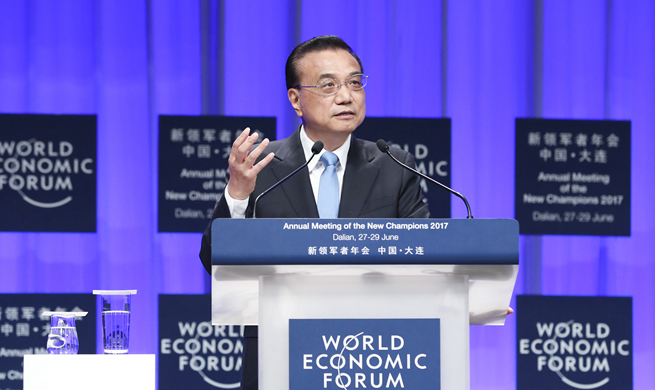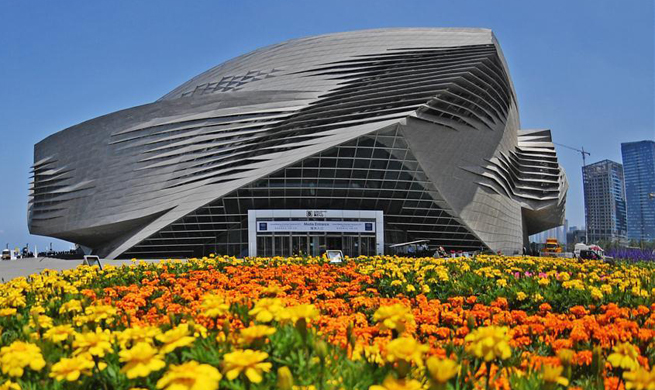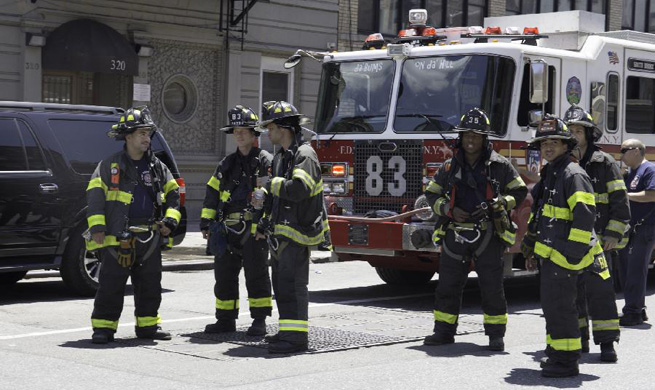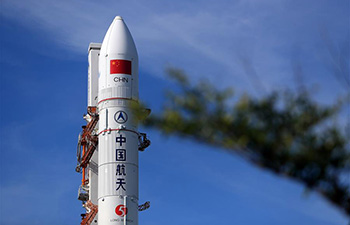BEIJING, June 27 (Xinhua) -- China's top legislature on Tuesday passed a revised Water Pollution Prevention and Control Law to go into effect on Jan. 1, 2018.
The law was adopted after a second reading at the bi-monthly session of the Standing Committee of the National People's Congress.
Submitted to the committee for a first reading in December 2012, the new version strengthens government responsibility and supervision.
TOUGH MEASURES
The law stipulates that emergency and back-up water resources should be set up in cities with single water sources and governments above the county-level should make public information of drinking water quality at least once a quarter.
Drinking water suppliers who fail to meet standards will be fined up to 200,000 yuan (about 32,000 U.S. dollars) and operations may be suspended until rectification.
Those who build sewage outlets in protected drinking water source areas will face a maximum fine of one million yuan.
The law instructs government to build sewage treatment and garbage disposal facilities in rural areas, and that standards be set on fertilizer and pesticide use.
The law brings the "river chief" system into being, with leading officials assuming responsibility for addressing water pollution, including resource protection, waterline management, pollution prevention and control, and ecological restoration.
Officials who achieve their goals will be rewarded, while those who fail in their responsibilities will be punished with fines and loss promotion opportunities, Tong Weidong from the NPC Standing Committee's legislative affairs commission told a press conference Tuesday.
GENERAL WAR AGAINST POLLUTION
The current Water Pollution Prevention Law was enacted in 1984 and has been amended twice in 1996 and 2008.
At the beginning of the session, lawmakers also reviewed the first soil pollution prevention and control law. According to the draft, all entities and individuals must prevent soil pollution, and will be held accountable for damage caused. There will be national standards for soil pollution risk control.
Soil condition information will be published by environmental protection authorities, who must submit pollution prevention plans to central and local governments for approval.
China revised its law on air pollution in 2015, restricting various sources of smog and making environmental data more transparent.
The Air Pollution Control Law stipulates that a gasoline quality standards should be established and matched with restrictions on major pollutants.
The revised Environmental Protection Law, took effect in January 2015, and introduced much heavier punishments, promising to name and shame enterprises which break the law.

















